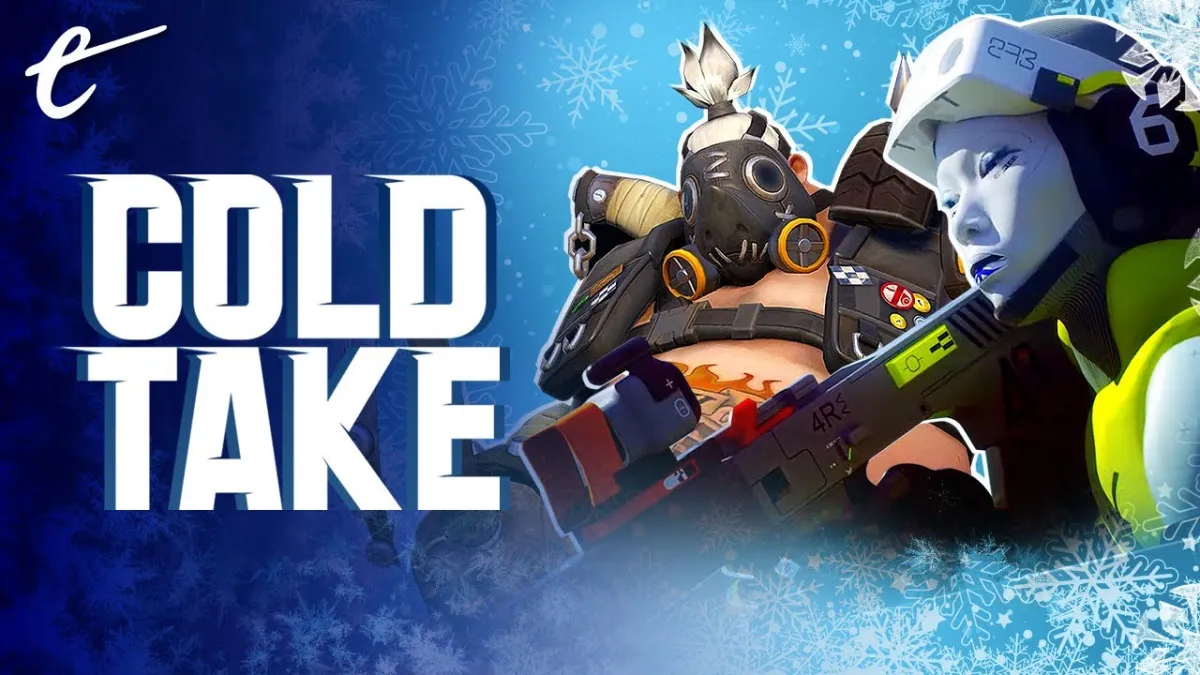This week on Cold Take, Frost takes a look at the current state of multiplayer video games and why it is basically a mess.
The Current State of Online Multiplayer Games Is Embarrassing – Transcript
“A games critic who doesn’t like multiplayer games. Way to stand out, you pretentious prick.”
Fix your posture, you shrimp-backed mouth breather. I used to only play multiplayer games.
Let’s have a truce until the end of the video. I’m not ashamed to say Call of Duty Black Ops was the reason I got an Xbox 360. Three of ‘em actually, a freak lightning storm took out the first one and the second one succumbed to the Red Rings of Death. Halo: Reach, Battlefield 3, Modern Warfare 3 and Black Ops 2 kept me hooked until I swapped to PC gaming in 2013. That’s where my traceable paper trail begins. 6,000 hours in Smite. 600 hours in PUBG. 300 in Ark. 250 in Dead By Daylight. Who knows how many in Minecraft? So I’m coming at it from a place of sincerity, experience, and passion when I say something is wrong with multiplayer games today. Too many are overtly predatory, using every trick in the book to keep people playing. And for what? Aside from a select few, it feels like there is no content in live service games and no real development plan outside of implementing whatever the loud crowd and serious men in suits want. All in an effort to keep people churning through, because people are the real content in video games.
My multiplayer disenfranchisement began with Paragon, the first game I personally witnessed be tainted by the multiplayer miasma that comes mandatory in today’s games. It was a third-person MOBA created by Epic Games in 2015. I say ‘was’ because it’s dead now, murdered by its own monetization system. It was technically free-to-play, but you had to buy card packs with real money, or currency you grind out, for a chance to get a piece of an item. If you’ve never played a MOBA, that’s like being forced to pay for bullets in an online shooter. Something tells me Epic Games saw Blizzard’s success with Hearthstone at the time and figured card packs were the way of the future into an early grave.
I desperately tried to tell the developers that this was a horrible idea during the alpha, but other testers rebutted me, saying opening card packs is exciting. Opening card packs is exciting. Getting legendary loot is exciting. Finding one more fry at the bottom of the burger bag is exciting! But it doesn’t make sense outside of games like Magic: The Gathering and Hearthstone! I’m not inherently against a company making money or a person spending their money on claw machine waifus. That’s your prerogative. It’s when a monetization system is duct taped to the face of a game that I lose faith in the ability of developers to wrestle the steering wheel away from the data analysts or the accountants that run game studios these days. Online multiplayer games used to ask me if I cared to spend a few bucks while I played. Now they ask me if I care to play a few games while I spend money. In the end, a good game with bad monetization is just a bad game.
Then 2016 came along and that’s when I felt games were really jumping the gun to ask for my mom’s credit card. A fully integrated day one esports scene for Overwatch seemed opportunistically premature, like the fox was trying to get into the chicken coop before the chickens had even hatched and it was selling other foxes reservation in the hen house. It’s as if Blizzard was trying to copy the model set by League of Legends without any of the grassroot efforts that created the scene. It happened to Heroes of the Storm and I won’t be surprised if it happens to Overwatch 2 too. I wouldn’t say Blizzard was solely responsible for games putting the cart before the horse, but I’d wager they made it more fashionable. Fortnite may have popularized battlepasses, but the game went through a rough birth before they got kids hooked to V-bucks. Online multiplayer games have always had shaky releases, but now they release with concrete ways to spend money and time, the two biggest boxes on the corporate checklist. Mobile gamers know what I’m talking about. Even if you play a game without spending a dime you’re flooded with notifications about the newest battle passes, chests, card packs, daily rewards, seasonal events. There’s so many things you can do! I’m not here because I have too much free time. I wanted to play a fun game designed by creative people. If I suddenly found myself immortal maybe I’d consider partaking, but until then life’s too short. I want something fun to do, not just something to do.
Put a few more drinks in me and I would blame Path of Exile for all of this. Chris Wilson gave a talk at a Game Developers Conference in 2019 where he described the process to making a game last forever. Frankly. it’s brilliant and easily backed up as Path of Exile continues to break its all-time user peaks even today. I recommend watching to hear how a passionate but struggling studio in New Zealand formulated a plan that maximized the appeal of their work which maximized their longevity and money as a byproduct. Battlepasses are effective. Seasonal content changes are exciting. Randomized loot drops and procedural map generation can be beneficial for games. Targeting the whales and content creators is a viable strategy if it all supplements the amazing core of one of the best free-to-play ARPGs that’s ever hit the market. Without a solid core, it doesn’t work for any game. This system especially does not work for online multiplayer PvP games.
But since then I’ve seen multiplayer games mimic Path of Exile’s development plan. There’s the season patches. There’s the battle passes. There’s the new event every 13 weeks. That’s where I can spend all of my time and money. But where is the game? Well, the game is PvP. You could play casuals, you could play ranked, you could bring your friends with ya. So the players are the content then. Every time someone stands up for lackluster multiplayer drivel by saying “it’s fun with friends,” a red-suited investor’s horns grow bigger. I’m always curious about the excuses people come up with to defend the inexcusable and it’s generally been the same. It’s more fun with friends. Why don’t you see that as a virtue of your friends and not of the game? There’s a newer excuse that comes up recently and that’s “maybe one day the game will have more content.”
And that sums up what online multiplayer gaming has become in the last decade, a way to dangle carrots forever. If you don’t like the carrot once it finally drops, it’s okay because we’ll dangle another carrot for ya. There will always be more promises for and if you don’t like the current content then tell us what kind of content you want and we’ll do our best to bring it to you. In the meantime go back to playing the game. Repeat. Repeat. Repeat. Live service games eventually reach a point where the heartless design pushes creatives away and leaves only the developers who are willing to design by CEO, community feedback, data analysts, and quarterly projections. The fanbase that’s left will be primarily made up of people who are willing to actively partake in the carrot dangling and shout over each other so the next one caters more to their needs.
I have to give it to Fortnite. It’s created a hub within its own game for people to socialize, play other kinds of games, be competitive, or create things with people. While gamers are the content within their game, Epic Games have taken the time to make something worthwhile that they can then monetize. It’s a better look than Paragon. That’s for sure. But I doubt the rest of the industry will take the moral of the story to be: make better games first and monetize after. Instead, online multiplayer gaming gets to where it is now. Even the PvE games are going the way of color-coded loot, opening packs, battle passes, and seasonal updates. Redfall was inevitable. What’s also semi-inevitable is the game industry’s habit of chasing after successful trends and adapting it to the benefit or detriment of their games. They’ve been knocking on the always-online door since the Xbox One’s release, but never had a suitable excuse until now. Stay online so that we may better service you with a constant flow of things for you to do and stuff for you to buy, while the game maintains an amorphous quality about itself, too vague to be considered good but constantly changing so you can never completely write it off as a lost cause. As I am making this video, Sony has revealed three new online multiplayer games, Haven’s Fairgame$, Firewalk’s Concord, and Bungie’s Marathon, and the Last of Us multiplayer game has been delayed. It didn’t even have a release date to begin with. They’re just getting us ready, aren’t they?
That’s why online multiplayer gaming has lost its appeal for me, and this trend of making hollow open-ended charades will continue, because firmly defining your parameters as a developer risks losing the wider audience. And you need that wider audience to feel like their opinion sways the content development cycle, so they can continue playing in perpetuity as they wait for the next patch to arrive with the content that will satisfy them. But it will never come. Because there is no content. The people are the content. Soylent Green is people.





